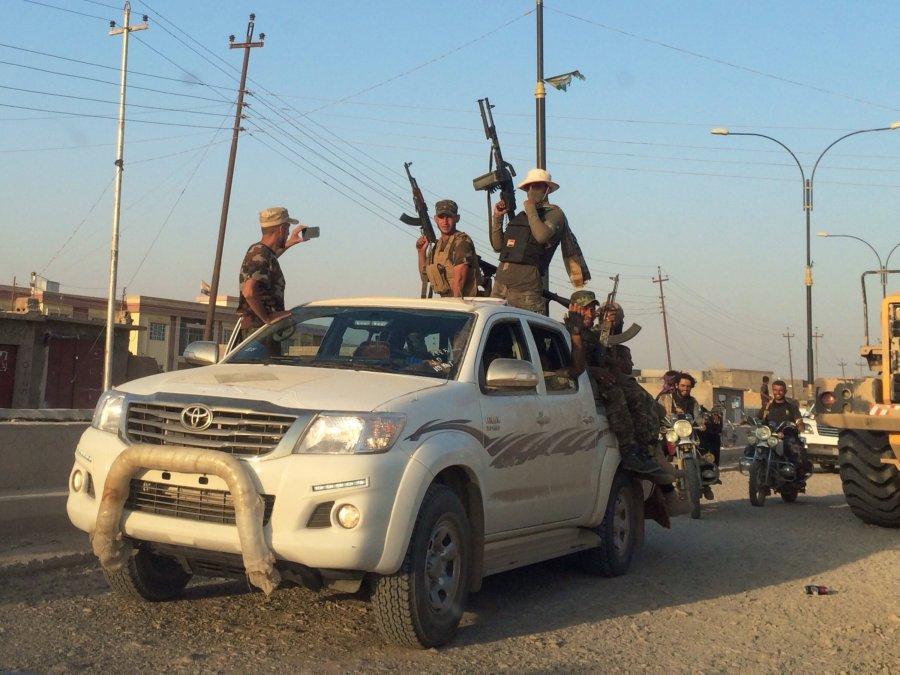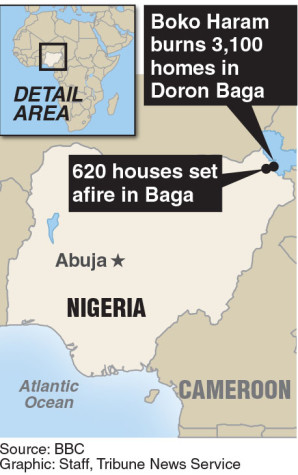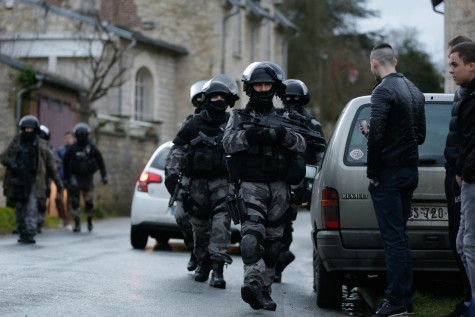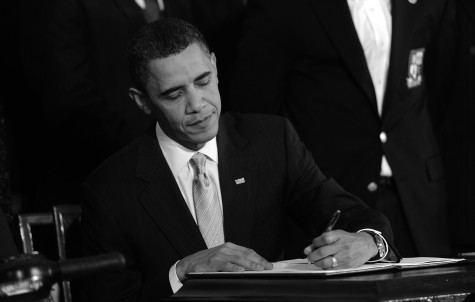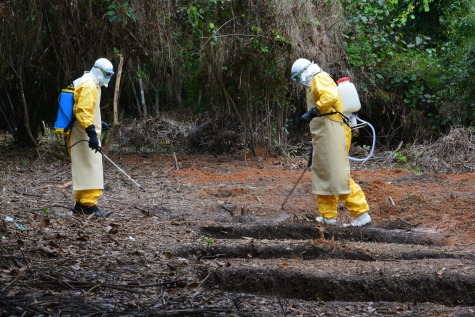No clear choices in battle with ISIS
Photo by MCT Campus
Shiite militiamen loyal to radical cleric Muqtada Sadr enter Amirli, Iraq, on Monday, Sept. 1 after helping to liberate the town from a nearly three-month siege by Islamic State militants.
During the last four years I’ve been to Turkey three times, volunteered at a refugee camp twice, and crossed the Syrian border once. I’ve seen people who’ve faced war and death time after time as their countries were ravaged by forces inside and outside their borders. And time and time again, I’ve heard people calling for the United States to either take down General What’s-his-Face, and people calling for the United States to stay out of “our” business.
What Americans tend to do is see the Middle East as a black-and-white issue. Either we go in there guns blazing or we timidly stand down; either we respect sovereignty or we protect the people of the region. Both camps have their own merits, of course. In the early 2000s, we took down Saddam Hussein, a dictator who had no qualms about gassing his own people. Of course, the Iraq war led to the deaths of thousands of American soldiers, and tens of thousands (or hundreds of thousands, depending on the source of your statistic) of Iraqis, be they soldiers, terrorists and civilians.
It could have been much worse; Hussein would most definitely had stayed in power without the United States intervening. But since 2001, it hasn’t gotten much better for the Iraqi people.
Enter a group of men preaching the word of the Prophet, men who start wiring villages for electricity and building roads, men who declare, for the first time since the Ottoman Empire, a Caliph. Enter the Islamic State.
Made up of the Islamic hardliners that were too radical for even Al Qaeda, ISIS has penetrated deep into the heart of Syria and Iraq, capturing weapons, and modern engines of war. These aren’t poor radicals depending on scraps from kings and princes in the Middle East; these men have tanks and anti-aircraft batteries, battle hardened warriors and recruits from all over the world. A group of men that have no qualms about killing aid workers and civilians and have dared the world to take them on.
The fact of the matter is that entering the Middle East is a difficult decision for the U.S. government, and the Islamic State has thrown the West a metaphorical curveball. The IS is smart and strong and is willing to do whatever it takes to impose its corrupted version of Islam across the Levant and ultimately the Middle East. In a show of brazen boldness, they executed two American citizens and invited the United States to enact its wrath.
The problem is, this isn’t an issue that will be solved by concentrated airstrikes, as Obama might believe. His proposal for an international coalition, for airstrikes against ISIS targets, can be nothing more than a stopgap measure. Promising to “not put boots on the ground” is a noble endeavor, but it is ultimately what’s going to be needed to combat an enemy that numbers in the tens of thousands. And in the end, there’s a good chance that no matter what we do, there’s going to be backlash from the international community.
This isn’t a black-and-white issue like many Americans believe. If we do nothing, the IS will continue its conquest unabated and entering into another war will only cause more problems.
The Islamic State might fly a black flag, but the issues surrounding it are colored gray.


